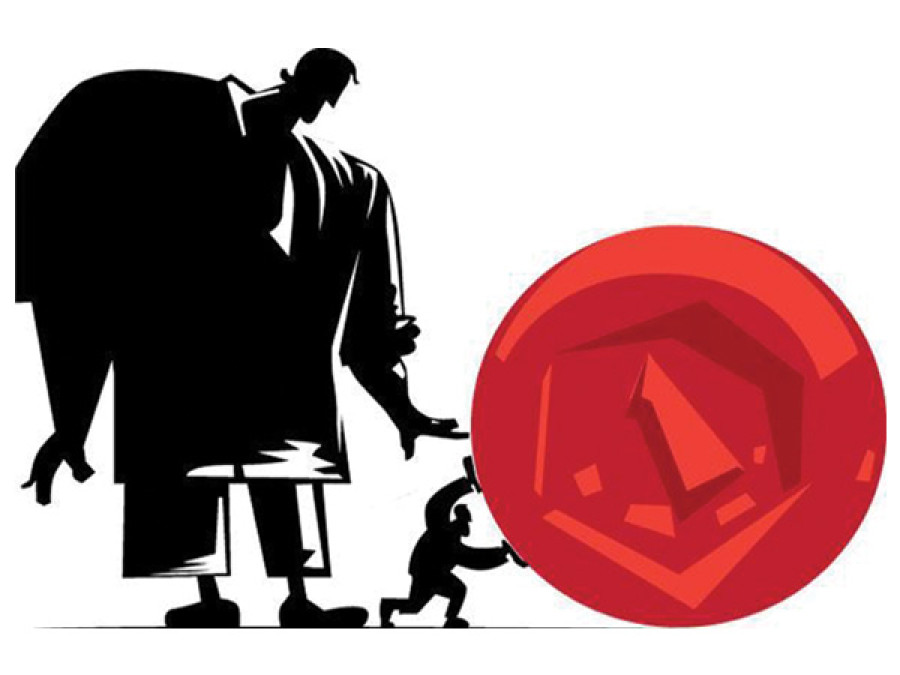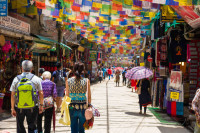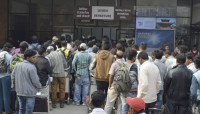Opinion
Careful reservations please
Reservation is but a small step to correct the wrong that has been done to the marginalised
Sanjeev Dahal
No reservation please” (February 7, Page 7): A catchy title and the fact that it was written by a social work student instantly drew my attention. Being a social work student myself, and more importantly having carried similar views to those of the author of this piece for most of my life, I felt the need to express my difference of opinion on the issue.
Before I plead for reservation and its need, let me talk about the privileges that people take for granted. In her acclaimed book White Privilege: Unpacking the Invisible Knapsack (1988), Peggy Macintosh tries making people aware of the privileges and benefits they derive from having a white skin. The idea was not making people with privileges feel guilty about themselves but to invite them to maintain an awareness of the benefits they derive from these privileges merely by birth. White privilege in the Nepali context is analogous to being born in so-called upper castes, namely Brahmin and Kshatriya. I belong to this privileged category albeit my family has undergone tons of struggles in life.
Taken for granted
But for now let us talk about the privileges. Examples of this privilege is that my mother tongue has been the national and official language for a long time despite the nation having 92 languages as mother tongues; people of my caste are overrepresented in major areas; “occupying around 37 percent of total population, the share of Brahmins and Chhetris in the integrated national governance is 82 percent and their involvement is strong in all major spheres of the nation including politics, judiciary, Parliament and business.” Nepali history is in essence the tales of the rulers, represented mostly by the Kshatriya warriors and their Brahmin advisors; my dress daura suruwal has been the national dress despite the nation hosting 100 ethnic/caste groups. In other words, my privileges are an outcome of the exclusion of many.
Equality today does not adequately address exclusion that people have faced over centuries because of caste, sex, gender, sexual orientation, religion, to name a few. Exclusion limits an individual’s full participation in everyday life with long-term effects in their overall growth and development. Reversing the process of exclusion needs mainstreaming the marginalised communities and providing them a rightful share in power, resource and opportunity. Reservation is but a small step to correct the wrong that has been done to the marginalised. It builds on the notion of inclusiveness which focuses on increasing participation through employment of marginalised people in government and related services as well as in the education system of the country.
Unfairness galore
I am aware that rich and privileged minorities have benefited mostly from reservations, which defeats their purpose. But doing away with reservations is not the solution; rather the solution is to find better ways to administer them. It cannot be denied that there are loopholes in the system, and privileges reserved for the needy are manipulated. But this is again a manipulation of the system that has to and can be checked. An effective strategy might be to employ an economic lens to determine qualification for these benefits.
Reservation does not doubt the capacities of people; it is, in fact, based on the premise that each of us can meaningfully contribute to the larger society. But since equality has been structurally denied for a long time resulting in systematic marginalisation of many groups, we need to be more generous to them now so that they can fight as equals. For example, men and women today are competing in the same race, but men run freely whereas most women have to carry additional responsibilities of household and childcare. The race may look fair and it might sound legit that the evaluations are done on the basis of performance alone, but the larger picture cannot be ignored.
Undoubtedly, the goal is to live in a world where everyone has equal access to resources and no one needs special treatment but until everyone is on the same playing field, it is unfair to expect them to compete. Affirmation action—reservation being an example—is a strategy to reach the state of equality. So reservations are necessary. But careful reservations please!
Dahal is pursuing Masters in Social Work with Families and Children at University Institute of Lisbon, Portugal




 14.12°C Kathmandu
14.12°C Kathmandu









%20(1).jpg&w=300&height=200)

